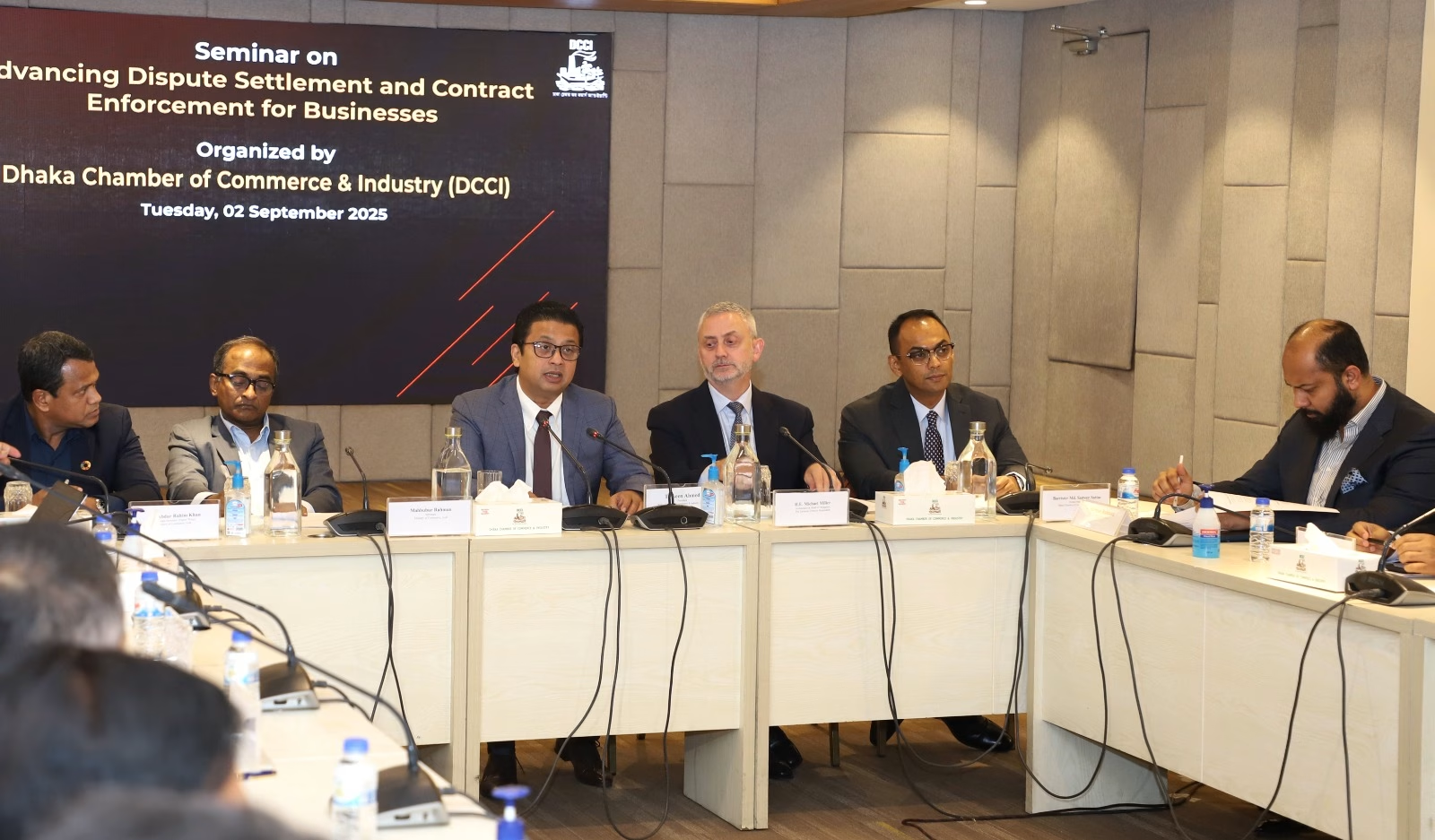Delays in trade dispute resolution are severely impacting foreign direct investment (FDI) and export growth in Bangladesh, experts warned at a seminar on 2 September 2025. The event, titled “Advancing Dispute Settlement and Contract Enforcement for Businesses,” focused on the urgent need for legal reforms to improve the business environment.
DCCI President Taskeen Ahmed highlighted the growing number of unresolved business-related disputes, noting that nearly 4 million cases remain pending in courts. “Despite the Arbitration Act of 2001, its implementation has been ineffective,” he said, calling for a separate Commercial Court with experienced judges to resolve these issues more efficiently.
Secretary of the Ministry of Commerce Mahbubur Rahman expressed similar concerns, citing the country’s dense population and its toll on the judiciary. “This situation is undermining both domestic and foreign investment,” he said, emphasizing the need for arbitration to ease the burden on courts. Rahman also mentioned that the process of establishing a Commercial Court is moving forward, with hopes of finalizing the draft within a month.
Ambassador and Head of Delegation of the European Union in Bangladesh Michael Miller supported the push for reforms, stressing that a reformed legal system would improve public life and attract foreign investment, especially in logistics and shipping. He underscored that the creation of Commercial Courts would bolster Bangladesh’s economic position as it nears LDC graduation.
Additional Secretary (Export Wing) at the Ministry of Commerce Md Abdur Rahim Khan pointed out that delays not only hinder FDI but also hurt export expansion. “Bangladesh is gradually losing its place in global trade,” he said, proposing the formation of “legal institutions” outside traditional courts to offer quicker resolutions.
Former DCCI President Barrister Md Sameer Sattar, in his keynote address, revealed that Bangladesh ranks 189th out of 190 countries in contract enforcement, according to the World Bank’s Doing Business Report. He urged amendments to the Arbitration Act to address the issue, noting that Bangladesh scores only 44.4 out of 100 in dispute resolution, reflecting the lengthy legal processes.
Director General of Bangladesh Investment Development Authority (BIDA) Md Ariful Haque emphasized that while legal reforms are necessary, institutional changes are also critical. CEO of the Bangladesh International Arbitration Centre (BIAC) K A M Majedur Rahman pointed out that delays in resolving disputes have become a major concern for investors.
Vikna Rajah, Co-Head of South Asia Desk at Rajah and Tann, Singapore, shared insights from Singapore’s robust legal system, which has attracted significant foreign investment. He called for similar reforms in Bangladesh to strengthen its position as an investment hub.
Judge Tareque Muajjem Hussain, Special Officer to the Chief Justice of Bangladesh, stressed the importance of appointing experienced judges specialized in commercial disputes, along with proper training, to ensure faster dispute resolution.
In the open discussion, former DCCI President Rizwan Rahman identified the lack of inter-ministerial coordination as a key obstacle in resolving trade disputes and urged reliance on arbitration centers for more efficient solutions.
The seminar concluded with the consensus that legal and institutional reforms are crucial to improving trade dispute resolution, thereby attracting more foreign investment to Bangladesh.


